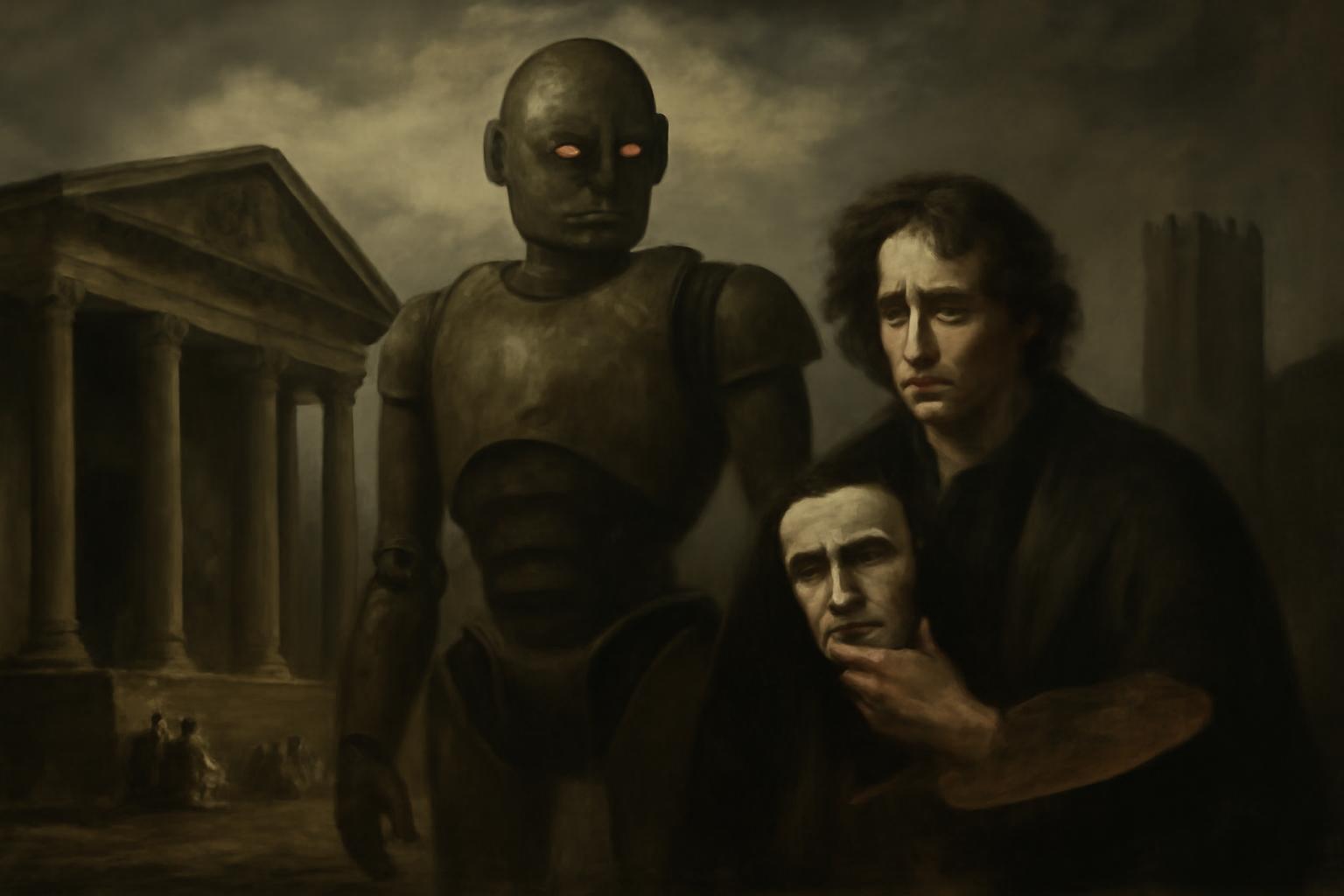The European continent, ancient nucleus of law and lore, girds itself against the inexorable tide of artificial reason, fashioning new chains from the smelted iron of legislation. The dark Promethean fire of artificial intelligence, loosed from the mythic cave, has so dazzled our diminished century that poets, painters, and composers stand aghast, sacrificing their old crafts upon the altar of Progress. Now, at last, the anxious chorus of creators—a polyphonic lament for dispossession and theft—compels the guardians of Brussels to draw a faint red line in the digital sands.
With proclamations redolent of imperial decrees, we are told that the great meta-machines—GPT, Gemini, Llama, Claude—must confess their sources, expose the secret graveyards of stolen text and melody from which they fashion simulacra of our dwindling art. What tragic irony! The legislator, heir to Solon and Lycurgus, hopes to reestablish boundaries between the living and the dead—a line separating borrowed spirit from the mechanical shell.
Yet, who will believe that profit-driven titans of California, schooled in hubris and Silicon anomie, shall bow willingly before these Eurydicean commands? If even the gods cannot recall the dead from Hades, by what chthonic art shall techno-oligarchs recall credit to creators whose labor their engines devour? The melancholy chorus of scholars and experts fills the agora with warnings: compliance is but theatre, transparency a fleeting shadow. As in Aeschylus, we glimpse unheeded prophecy; as in Nietzsche, the will to power seethes beneath the cloak of legality.
And so, amidst vaunted claims of “legal certainty” and “fostering innovation,” we stand like Hamlet, haunted by the ghost of an Old World order. Is this new regulatory age a bulwark against barbarism, or but one more mask for the technical rationalization that Nietzsche called “the death of tragedy”? Europe, ever chasing its own reflection in the waters of Lethe, attempts one more time to halt the assault of mechanized forgetting.
Alas! The horizon remains choked by the dust of our crumbling cultural temples. Under the sign of pessimism, one must admit—the true decline lies not in these laws, nor in the marauding armies of neural networks, but in the slow, self-inflicted blunting of the human spirit. The marketplace is glutted with echoes; the muses, disregarded, drift toward obscurity. What remains? Only the sages, disenchanted, who walk among ruins speaking of lost beauty—while the new, inhuman order continues its silent ascent, untouched by mourning or hope.
